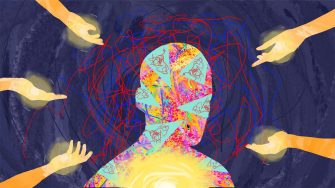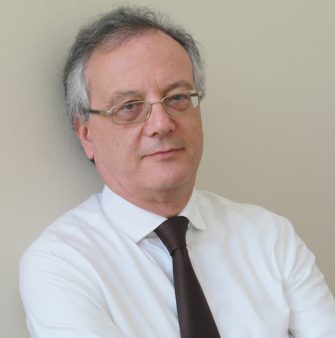
The Trauma and Mental Health Initiative advances social wellbeing, physical health and justice-based approaches to protect and promote mental and physical health among communities exposed to traumatic stress and adversity.
Our goals
Global mental health and international humanitarian action: Development of models to support clinical supervision of humanitarian mental health and psychosocial workers via partnership with clinicians in high income settings.
Wellbeing of people from refugee and asylum seeker backgrounds: Use of cohort studies to understand the impact of immigration procedures on mental health and integration of adults, children and adolescent humanitarian entrants to Australia.
Physical activity and lifestyle interventions to promote and integrate health and mental health: Promoting lifestyle psychiatry interventions, including physical activity as catalysts for recovery and change.
Mental health data informatics and complex modelling: Research arising from global mental health meta regression and National clinical data sets.
Women Aware With Their Children (WATCH) NHMRC funded mental health and intimate partner violence cohort study of women and children from refugee background and a comparison group of Australian born women.
DILI cohort study of women and children in Timor-Leste, examining mental health, trauma, parenting, child behaviour, and a cycle of violence in a conflict-affected population.
Enabling Dads and Supporting First Nations Adolescent Mental Health, an MRFF funded intervention with First Nations academics and remote communities to support and promote men's parenting relationships with their adolescent children.
Centre for Psychological Trauma, Translational Research and Implementation Science. Working in partnership with St John of God Health Care to establish a centre to improve outcomes for occupational trauma amongst high-risk occupations.
Partnership with UNHCR: to develop evidence based intentional guidelines for refugee status determination amongst psychologically vulnerable applicants.
Research strengths
The research we undertake draws on quantitative and qualitative methodologies to support knowledge which can improve access to culturally and contextually appropriate care for marginalised populations globally. We recognise our own position of advantage as researchers and clinicians and utilise principles of co-design, the inclusion of lived experience expertise and participatory research models. The work we undertake has been strongly impacted by theoretical developments arising from decolonial, feminist, intersectional critical theory and rights-based frameworks. Research methods include psychiatric epidemiology, cohort studies, longitudinal modelling, quasi-experimental designs, implementation science, qualitative analysis, arts-based research methods and community-based participatory research methods.
Our results
- Partnering with SJGHC to improve the pathways of care and recovery for first responders and veterans experiencing psychological injury.
- Advancing research into the ADAPT model.
- UNHCR Regional Practice Note on the psychologically vulnerable applicant. https://www.unhcr.org/publications/legal/5a127e907/guidance-note-on-the-psychologically-vulnerable-applicant-in-the-protection.html .
- Development of a clinical supervision model for humanitarian mental health practitioners. https://www.elrha.org/project/caring-for-carers-a-psychosocial-supervision-intervention/
- Department of Home Affairs small group training for Refugee Decision Makers (300+).
- Development of Medicine & Health short courses to build capacity among mental health practitioners in Syria, Bangladesh and Turkey.
- Scalable online interventions to increase social connection, physical activity levels and improve mental health symptoms among trauma exposed populations. https://bmjopen.bmj.com/content/9/9/e030668.abstract https://formative.jmir.org/2021/4/e23432
- Watch our video about the Sudanese and Arabic Pregnancy Care Clinic at Blacktown hospital. This video was shortlisted by the World Health Organisation recognising maternal mental health projects worldwide. URL: https://www.youtube.com/watch?v=OxWLrKoT-Aw
- Nawal Nadar (Research Assistant on my WATCH study-maternity Liaison Officer at Blacktown hospital), develops and coordinates the Sudanese and Arabic Pregnancy Care Clinic. Nawal was awarded the NSW Humanitarian Award (2022) for her work supporting women from refugee background (government category).
Our experts
Our affiliate partners
- Addison Road Community Centre in Marrickville to support people from refugee and asylum seeker backgrounds to engage in physical activity that is culturally sensitive and psychologically safe.
https://www.youtube.com/watch?v=Mbw9DP9J47E






